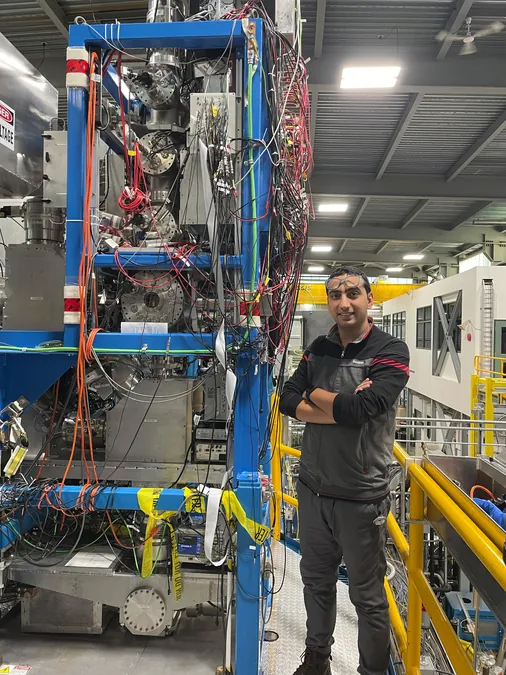
Unlocking the Secrets of the Universe: Heaviest Tin Isotopes Change the Game in Element Synthesis
2025-07-02
Author: Li
Revolutionary Findings on Tin Isotopes
An ambitious international team of scientists, spearheaded by experts from GSI/FAIR in Darmstadt, Germany, has made groundbreaking advances in the study of r-process nucleosynthesis. Their intriguing research, conducted at the renowned TRIUMF facility in Vancouver, Canada, focuses on mass measurements of three extraordinarily neutron-rich tin isotopes: tin-136, tin-137, and tin-138.
Decoding Element Formation in the Universe
Published in the prestigious journal *Physical Review Letters*, this high-precision research sheds light on the formation of heavy elements in the cosmos, particularly through the rapid neutron capture process (the r-process) occurring during catastrophic neutron star collisions. The findings reveal crucial data about neutron separation energy, which navigates the r-process on the nuclear chart, uncovering significant shifts in the behavior of tin nuclei beyond the magic neutron number N=82.
Game-Changing Discoveries Await
Dr. Ali Mollaebrahimi, the lead author and key experimental spokesperson, asserts that these unexpected changes could profoundly influence the r-process pathway and shift our understanding of nuclear stability limits. The combination of these mass measurements with advanced isotope production and cutting-edge theoretical models marks a leap forward in comprehending nuclear forces operating far from stability.
Cutting-Edge Technology at Work
A pivotal element in this research has been the multiple-reflection time-of-flight mass spectrometer (MR-TOF-MS), an innovative device designed by the IONAS group and GSI/FAIR, optimized for the unique capabilities of the TITAN facility at TRIUMF. This technology, alongside specialized reaction targets, led to the successful measurement of these exotic isotopes.
Celebrating Collaborative Success
Dr. Timo Dickel, leader of the GSI/FAIR research group "Thermalized Exotic Nuclei," remarked on the significance of this achievement, attributing it to extensive collaboration between research teams in Germany and Canada. The MR-TOF-MS, installed for the first experiments in 2017, has not only contributed to this recent success but also facilitated prior remarkable discoveries, including the isotope ytterbium-150.
Paving the Way for Future Discoveries
The findings from this study are a vital contribution to the ongoing FAIR Phase 0 activities, which focus on training young researchers with the next-generation tools for future experimental collaborations at the FAIR facility. As scientists continue to unlock the mysteries of the universe's elemental origins, the promise of new and transformative insights into nuclear structure and synthesis looms on the horizon.

 Brasil (PT)
Brasil (PT)
 Canada (EN)
Canada (EN)
 Chile (ES)
Chile (ES)
 Česko (CS)
Česko (CS)
 대한민국 (KO)
대한민국 (KO)
 España (ES)
España (ES)
 France (FR)
France (FR)
 Hong Kong (EN)
Hong Kong (EN)
 Italia (IT)
Italia (IT)
 日本 (JA)
日本 (JA)
 Magyarország (HU)
Magyarország (HU)
 Norge (NO)
Norge (NO)
 Polska (PL)
Polska (PL)
 Schweiz (DE)
Schweiz (DE)
 Singapore (EN)
Singapore (EN)
 Sverige (SV)
Sverige (SV)
 Suomi (FI)
Suomi (FI)
 Türkiye (TR)
Türkiye (TR)
 الإمارات العربية المتحدة (AR)
الإمارات العربية المتحدة (AR)